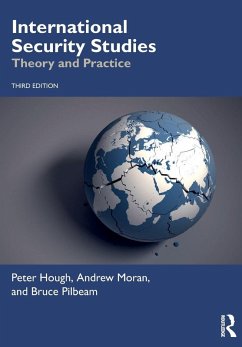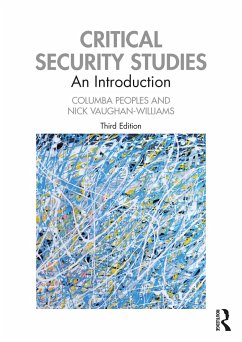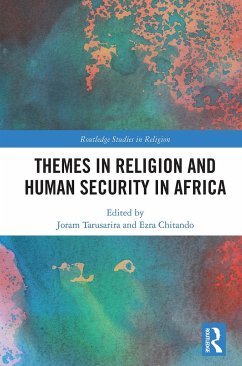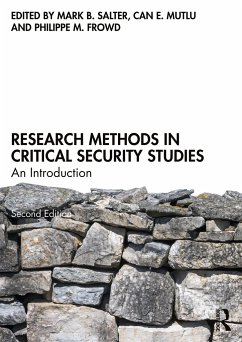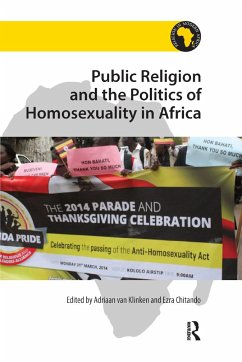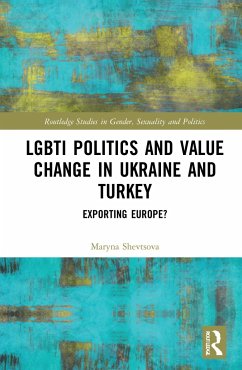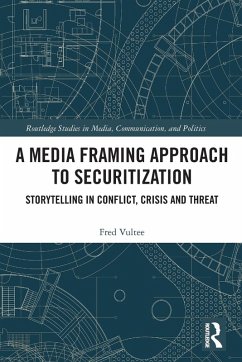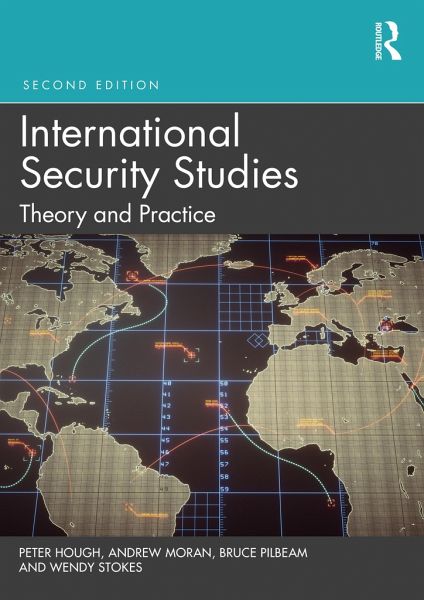
International Security Studies
Theory and Practice
Versandkostenfrei!
Versandfertig in über 4 Wochen
50,99 €
inkl. MwSt.
Weitere Ausgaben:

PAYBACK Punkte
25 °P sammeln!
This new and updated edition of International Security Studies provides students with a comprehensive introduction to the subject of security studies, with a strong emphasis on the use of case studies to illustrate theoretical debates.In addition to presenting the major theoretical perspectives, the book examines a range of important and controversial topics in covering both traditional military and non-military security issues such as WMD proliferation, humanitarian intervention, food security and environmental security. The volume also offers a wide range of case studies providing detailed a...
This new and updated edition of International Security Studies provides students with a comprehensive introduction to the subject of security studies, with a strong emphasis on the use of case studies to illustrate theoretical debates.
In addition to presenting the major theoretical perspectives, the book examines a range of important and controversial topics in covering both traditional military and non-military security issues such as WMD proliferation, humanitarian intervention, food security and environmental security. The volume also offers a wide range of case studies providing detailed analyses of important global security issues.
The 37 chapters contain pedagogical features and recommended further reading and are divided into five thematic sections:
Conceptual and TheoreticalMilitary SecurityNon-Military SecurityInstitutions and SecurityCase Studies
Updates for the second edition include:
New chapters on cybersecurity and the insecurity of the LGBT community.Substantial revisions to existing chapters to incorporate analysis of important international political developments, including the Trump Presidency; 'Brexit'; North Korean nuclear standoff; the Syrian Civil War; Yemen Civil War; Mediterranean migration crisis; Climate change diplomacy and the Sustainable Development Goals.
This textbook will be essential reading for all students of security studies and highly recommended for students of critical security studies, human security, peace and conflict studies, foreign policy and International Relations in general.
In addition to presenting the major theoretical perspectives, the book examines a range of important and controversial topics in covering both traditional military and non-military security issues such as WMD proliferation, humanitarian intervention, food security and environmental security. The volume also offers a wide range of case studies providing detailed analyses of important global security issues.
The 37 chapters contain pedagogical features and recommended further reading and are divided into five thematic sections:
Conceptual and TheoreticalMilitary SecurityNon-Military SecurityInstitutions and SecurityCase Studies
Updates for the second edition include:
New chapters on cybersecurity and the insecurity of the LGBT community.Substantial revisions to existing chapters to incorporate analysis of important international political developments, including the Trump Presidency; 'Brexit'; North Korean nuclear standoff; the Syrian Civil War; Yemen Civil War; Mediterranean migration crisis; Climate change diplomacy and the Sustainable Development Goals.
This textbook will be essential reading for all students of security studies and highly recommended for students of critical security studies, human security, peace and conflict studies, foreign policy and International Relations in general.





